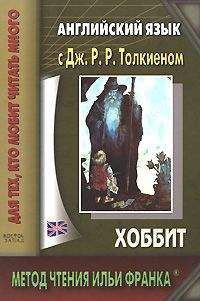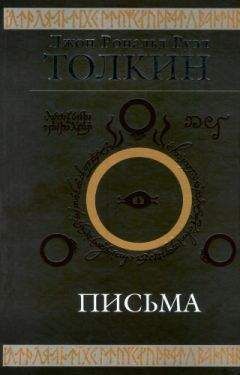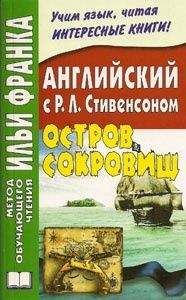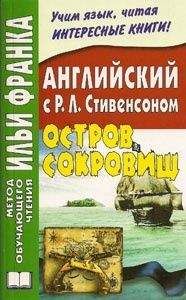Rocks were buried down (скалы сыпались вниз; to bury — хоронить; зарывать) from on high (с высоты) by the goblins above (гоблинами, что находились наверху); but they held on (но они держались), leapt down to the falls’ foot (прыгали вниз к подножию водопада), and rushed forward to battle (и устремились вперед, к битве). Wolf and rider fell (волки и всадники падали) or fled before them (или спасались бегством перед ними). Thorin wielded his axe (Торин умело обращался со своим боевым топором) with mighty strokes (могучими ударами), and nothing seemed to harm him (и ничто, казалось, не могло причинить ему вред; to harm — вредить, причинять вред, наносить ущерб).
“To me (ко мне)! To me! Elves and Men (эльфы и люди)! To me! O my kinsfolk (о мои родичи)!” he cried (закричал он), and his voice shook like a horn (и голос его сотрясался, словно рог) in the valley (в долине).
Down (вниз), heedless of order (и без его приказания: «не обращая внимания на приказ»), rushed all the dwarves of Dain (кинулись все гномы Дейна) to his help (к нему на помощь). Down too came many of the Lake-men (также вниз спустились и множество Людей-с-Озера), for Bard could not restrain them (ибо Бард не мог сдержать их; to restrain — сдерживать, обуздывать); and out upon the other side (и из-за другой стороны /отрога/) came many of the spearmen of the elves (спустилось/пришло множество копьеносцев-эльфов). Once again the goblins were stricken in the valley (снова: «еще раз» гоблины оказались повержены в долине); and they were piled in heaps (и они были свалены в кучи; to pile — складывать, сваливать в кучу; heap — куча, груда) till Dale was dark and hideous (пока Дейл не стал темным и отвратительным) with their corpses (от их трупов).
kinsfolk [ˈkɪnzfǝʋk] heedless [ˈhi: dlɪs] hideous [ˈhɪdɪǝs] corpse [kɔ: ps]
Rocks were buried down from on high by the goblins above; but they held on, leapt down to the falls’ foot, and rushed forward to battle. Wolf and rider fell or fled before them. Thorin wielded his axe with mighty strokes, and nothing seemed to harm him.
“To me! To me! Elves and Men! To me! O my kinsfolk!” he cried, and his voice shook like a horn in the valley.
Down, heedless of order, rushed all the dwarves of Dain to his help. Down too came many of the Lake-men, for Bard could not restrain them; and out upon the other side came many of the spearmen of the elves. Once again the goblins were stricken in the valley; and they were piled in heaps till Dale was dark and hideous with their corpses.
The Wargs were scattered (Варги были разбросаны) and Thorin drove right against the bodyguards of Bolg (и Торин двинулся прямо на личную сражу Болга; to drive (drove, driven) — гнать; наступать; устремляться вперед). But he could not pierce their ranks (но он не мог пронзить = пробить их шеренги). Already behind him among the goblin dead lay many men and many dwarves (за ним уже, среди гоблинов лежали мертвыми множество людей и множество гномов), and many a fair elf (и множество прекрасных эльфов) that should have lived yet long ages (которым еще бы жить да жить долгие годы) merrily in the wood (весело в лесу). And as the valley widened (и по мере того, как долина расширялась; wide—широкий, обширный; towiden — расширять (ся), распространять (ся) ) his onset grew ever slower (его натиск все ослабевал: «становился все более медленным»; onset — натиск, атака, нападение; to grow (grew, grown) — зд. становиться, делаться; slow — медленный). His numbers were too few (его ряды были слишком малочисленны; number — число). His flanks were unguarded (и фланги его остались незащищенными; to guard — охранять, сторожить, защищать). Soon the attackers were attacked (вскоре атакующие /сами были/ атакованы»), and they were forced into a great ring (и они были вынуждены образовать большое кольцо; to force — заставлять, принуждать), facing every way (находясь лицом к каждой стороне/направлению; toface—быть обращенным к, смотреть в лицо), hemmed all about with goblins and wolves (окруженные со всех сторон гоблинами и волками; to be hemmed about — бытьокруженным; hem—ободок, кайма; край, кромка; tohem — подрубать, подшивать; обшивать, окаймлять) returning to the assault (которые вновь обратились к нападению). The bodyguard of Bolg (стражники Болга) came howling against them (обрушились на них с воем; to howl — выть, завывать, голосить), and drove in upon their ranks (и врезались в их шеренги) like waves upon cliffs of sand (подобно волнам /набегающим/ на утесы из песка). Their friends could not help them (их друзья не могли им помочь), for the assault from the Mountain was renewed (так как нападение с Горы возобновилось) with redoubled force (с все возрастающей силой; to double — удваивать, увеличивать вдвое; toredouble — усиливать, увеличивать, усугублять), and upon either side (и с каждой стороны) men and elves were being slowly beaten down (людей и эльфов постепенно побеждали; to beat down — сбить с ног, повалить; подавить).
bodyguard [ˈbɔdɪɡɑ: d] assault [ǝˈsɔ: lt] redouble [ri: ˈdʌb (ǝ) l]
The Wargs were scattered and Thorin drove right against the bodyguards of Bolg. But he could not pierce their ranks. Already behind him among the goblin dead lay many men and many dwarves, and many a fair elf that should have lived yet long ages merrily in the wood. And as the valley widened his onset grew ever slower. His numbers were too few. His flanks were unguarded. Soon the attackers were attacked, and they were forced into a great ring, facing every way, hemmed all about with goblins and wolves returning to the assault. The bodyguard of Bolg came howling against them, and drove in upon their ranks like waves upon cliffs of sand. Their friends could not help them, for the assault from the Mountain was renewed with redoubled force, and upon either side men and elves were being slowly beaten down.
On all this Bilbo looked with misery (на все это Бильбо смотрел с мучением; misery — страдание, горе, мучение). He had taken his stand on Ravenhill (он занял место на Вороньем Холме; stand — позиция, положение) among the Elves (среди Эльфов) — partly because there was more chance of escape (частично из-за того, что там было больше шансов спастись бегством) from that point (с того места), and partly (и, частично) (with the more Tookish part of his mind (благодаря: «с большей» Туковской части его ума)) because if he was going to be (потому, что если он и собирался принять участие; to be in —. принимать участие в чем-либо) in a last desperate stand (в последней отчаянной линии обороны; last stand — последняя линия обороны), he preferred on the whole (он предпочитал, в общем) to defend the Elvenking (защищать Короля эльфов). Gandalf, too, I may say, was there (Гэндальф тоже, я должен сказать, был там), sitting on the ground (сидя на земле) as if in deep thought (и словно глубоко задумавшись: «словно глубоко в мыслях»), preparing, I suppose (подготавливая, как я полагаю), some last blast of magic (какой-то последний волшебный порыв/взрыв; blast — сильный порыв ветра; взрыв) before the end (перед самым концом). That did not seem far off (а он, казалось, был близок: «который не казался очень далеким»; far off — отдаленный).
“It will not be long now (теперь уже не долго осталось), ” thought Bilbo (думал Бильбо), “before the goblins win the Gate (до того, как гоблины отвоюют Ворота), and we are all slaughtered (и нас всех безжалостно убьют) or driven down and captured (или сгонят вниз и схватят). Really it is enough to make one weep (действительно уж, этого достаточно, чтобы заставить заплакать), after all one has gone through (после всего того, сквозь что пришлось пройти). I would rather old Smaug had been left (по мне уж лучше бы старый Смауг остался) with all the wretched treasure (со всем этим проклятым сокровищем), than that these vile creatures should get it (чем уж эти отвратительные существа заполучат его; vile — подлый, низкий, гнусный), and poor old Bombur (и бедный старый Бомбур), and Balin and Fili and Kili (и Балин, и Фили, и Кили) and all the rest come to a bad end (и все остальные так трагически: «плохо» погибнут; to come to an end — плохо кончить, погибнуть); and Bard too (и Бард тоже), and the Lake-men and the merry elves (и Люди-с-Озера, и веселые эльфы). Misery me (горе мне)! I have heard songs of many battles (слышал я песни о многих битвах), and I have always understood (а я всегда представлял: «понимал») that defeat may be glorious (что и поражение может быть славным; defeat—поражение, разгром; glorious—великолепный, прекрасный, знаменитый, славный; glory — слава, триумф). It seems very uncomfortable (а оказывается, оно очень неприятное: «неудобное»), not to say distressing (чтобы не сказать огорчительное). I wish I was well out of it (как бы мне хотелось удачно избежать всего этого; to be well out of it — удачно избежать чего-либо, счастливо отделаться от чего-либо). ” The clouds were torn by the wind (облака были разорваны ветром; to tear (tore, torn) — разрывать (ся), рвать (ся) ), and a red sunset slashed the West (и красный закат прорезал /небо/ на Западе; to slash — порезать, глубоко ранить; разрезать, полосовать).





